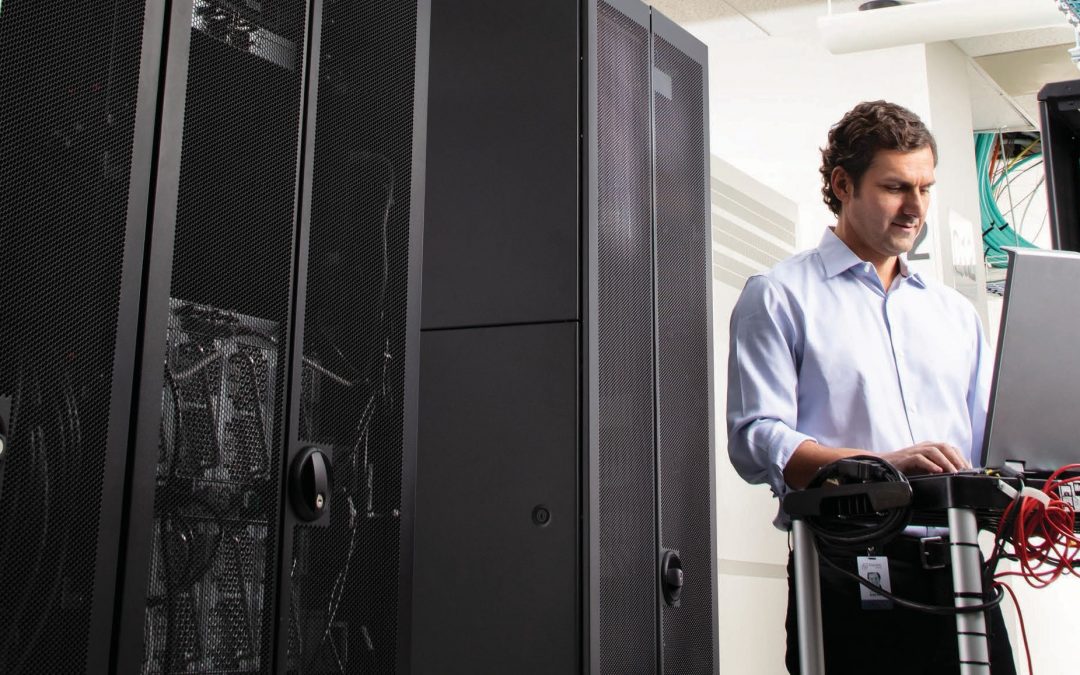Introduction
In our digital world, it is essential to gain market share early on. So what can be done to accelerate the building/deployment of a new data center that will underpin your new business plan? HPE DCF Conceptual Design Service helps you with this.
Making an all-in-one data center takes time and is a heavy front-end investment. Therefore, you will need a partner who guides you through a methodical planning process in selecting the right technology options in the design and helps avoid lengthy and multiple iterations of design and build processes
Hewlett Packard Enterprise can help you achieve this goal with a faster time-to-market, which helps you to win the market ahead of your competition and guides you to meet your budget. HPE works with you to provide options that can accelerate implementation, provide flexibility, overcome differences, and right size for always-on reliability.
Buildings are built to last and we require them to be flexible. Data centers are no different, in that they serve/host at least five different IT refreshes. Knowing how quickly IT evolves, the data center must be modular and flexible to cope with each new IT generation to future-proof your investment. HPE is acquainted in both worlds—facility and IT. We can navigate our customers across both worlds, we can assist you to overcome possible business and/or cultural obstacles during this significant investment.
Sometimes, the business decision to build/expand a data center lags behind the support of the market and IT system needs. So what is the alternative to provide an environment of immediate space, power, and cooling to the IT users? Exploring such options provides
intermediate steps to the business to react quicker to the market. HPE can provide you these options, as well as help you make the right choices for your business.
HPE attends to all aspects of the data center design. It’s armed with a plan to communicate details to company executives and other stakeholders of how to proceed with no surprises at the end.
When embarking on the task of developing a new data center, there are many questions that all clients face:
- How do I ensure that the new data center is aligned to my business requirements and my IT strategy?
- What are my options which are based on current best practices and how will it be future-proofed?
- What are some short-term solutions while building my data center?
- How do I justify my decisions—technically, economically, and commercially?
HPE Data Center Technology experts help make sure that throughout the process all stakeholders are identified and involved in the critical decisions. Our experts help navigate through the differences in priorities and needs among business units, IT, and facility departments by bridging the gap to provide a cohesive data center plan. They have experience in different industry sectors and introduce you to the best practices in your industry sector along the design process.
Every design process goes through iterations and the longer these take, more delayed your data center is ready for use. The design typically starts with reviewing the features of an existing data center and historical critical IT load growth. The danger in this approach is that it does not factor in changes in IT software, IT hardware, and business-related
changes resulting in under- or over-building. This is further complicated as companies build data centers once every 5 to 10 years and is difficult keeping up with the latest data center best practices. HPE can fast track the process to bring you up to speed as we are involved in the designing, building, commissioning, and operationalizing data centers every day.
That’s why HPE starts with understanding the business requirements and aligns all stakeholders in a series of workshops. The workshop results are translated into a data center road map, which guides the design process that follows. During the conceptual design/planning process, we consider technology options as the means to make deliberate choices that will directly serve the business priorities such as time to market, modularity, scalability, flexibility, and availability.
The technology options review acts as a future-proofing step in order to verify scenarios. These include how to—grow, host future IT generations, enable right availability in terms of configuration, build right module sizes, take full advantage of location and climatic conditions, and satisfy other parameters—important to you in the workshop process.
While we provide assistance from the vast experience of our consultants during the different evaluation stages of the process, we also help you consider alternative options.
The overall program to build a new enterprise data center takes typically two to three years, however, HPE can help you to consider faster deployment models. These include data centers that are colocated, modular containerized, modular prefabricated, or on cloud. The deployment models are either as an interim or permanent solution.
Wise choices need to be made to fit with budget, which serves the business with new data center capacity. HPE helps you by advising when choices are likely to exceed your budget or on strategies to stay within your budget.
HPE provides you with a conceptual design/plan that meets your business requirements and drivers to build/deploy a new data center accounting for the specific challenges you face with no surprises afterwards.
Design process
The process has three key features, which addresses your concerns:

Figure 1. Strategic road map
Your business needs and IT strategy must be translated into the right plan for a data center that supports them. HPE is a technology company with a solid understanding of current, proven IT. It looks toward the future, innovating and improving the product line and is in an excellent position to help you get through this journey.
If you need help on your IT road map, we can help you there, too. HPE can help you on your journey to progress into the hybrid cloud realm by taking reasonable steps to achieve these goals. After reviewing your business requirements and IT strategy, we will develop a
space, power, and cooling (SPC) profile. During this phase, HPE advises you on methods and strategies to remain within your budget.
The result of this phase is a well-grounded data center strategy, which aligns to your business priorities, stakeholders’ requirement, and supports your IT strategy.
Technology options—Outcome: Helps ensure that you have considered all feasible technologies that support your current and future needs.

Figure 2. Design options
With a firm understanding of your business requirements, we develop your design parameters and the design basis of the data center. After studying the location and climate, we provide data center facility technology options aligned to current best practices and support future trends, leading to various configurations. We have experience across 40+ technology options such as power/cooling configurations. HPE helps to reduce these options to two to four, with a base option representing current practice to benchmark the advancement in performance. With the shortlisted options, we proceed with a conceptual design and a test fit.
The results of this sub-process are two to four options to evaluate, which align to your needs as outlined by your strategy
olution recommendation—Outcome: Provides a solution, which is justified by data.

Figure 3. Evaluation and recommendation
For the options identified in the previous phase the construction costs, which is top two major contributor to the lifecycle costs, are developed. Then key designs are modeled using an energy analyzer, which provides information on performance and efficiency. This model yields the electricity consumption, which is the other major cost component in the lifecycle costs along with water usage and carbon footprint. A minor contributor to operating costs is the maintenance. The cost of each concept will be developed to within 15%.
Each of the designs is evaluated technically and from a commercial viewpoint to be sure that the solutions are aligned to your needs.
The result of this sub-process is a solution and recommendation that meets your needs, which is justified by financial, technical, and commercial analysis.
In summary, conceptual planning is a fast-track service that takes you through the entire data center facilities lifecycle journey in a methodical approach. HPE uses exhaustive checklists to provide creative solutions to your IT and facilities systems problems, opportunities to meet your organization’s KPI, and regulatory demands. The exercise culminates in a set of useful outcomes such as narrative report, color-coded systems block diagrams, execution timelines, and a total cost of ownership. You can easily utilize the conceptual plan to transcend all the necessary conversations with your business and IT end-user groups, your technical teams, facility teams, as well as executive discussions that require business justification, strategy, technical creativity, and financial impacts
HPE award-winning concept design
In a complex, dynamic, and fast-evolving Asia Pacific market, there are some excellent examples of data center innovation in design, build, and management. Samsung SDS Sangam IT Center (South Korea) won the DCD The Enterprise Data Center Award. HPE provided the conceptual design in this project.
The result is 40 MVA data center in a high-rise 11-story building, with unique heat-pipe cooling systems and medium voltage UPS system with substantial operational saving.
Conclusion
HPE provides a directed and focused Conceptual Design Service for your data center. Each data center is unique in requirements as well as the amount of help that organizations may need. For this reason, we customize our service to your specific needs and use cases. We believe that we are unique in our approach and our conceptual planning of data centers. We are a technology company with an excellent IT and data center know-how.
HPE knows technology
This knowledge helps optimize your data center and enhances its relevancy in the future.
- Well versed in IT initiatives such as cloud, disaster recovery, edge, artificial intelligence, high-performance computing (HPC), and others; and what these initiatives mean to key features of the DC
- Various deployment models such as central versus edge, own versus colocated, and on-premises versus off-premises, along with understanding as-as-service models and how these impact the data center facility.
- Factored into our concepts are forward-thinking designs taking into account the future developments of IT as appropriate to your needs and requirements.
Uniquely qualified as we are involved with development of the power and cooling of the next-generation IT at HPE.
HPE knows data centers
- We understand the impacts of IT refresh cycles, its impact on the data center
- Extensive expertise, knowledge, and experience from data center design and implementation projects worldwide with enterprise, service provider, and HPC customers
- More than 40 tier IV data center and 7 million m² data center white space designed
- General contractor for projects of various sizes
- Innovative concepts and ideas, focused on data center design exclusively
- All HPE data center engineers are accredited from Uptime Institute, American Society of Heating, Refrigerating and Air-Conditioning Engineers (ASHRAE), Leadership in Energy and Environmental Design (LEED), and more
- Vendor neutral, no manufacturer preference for infrastructure components
For More Information Contact US

